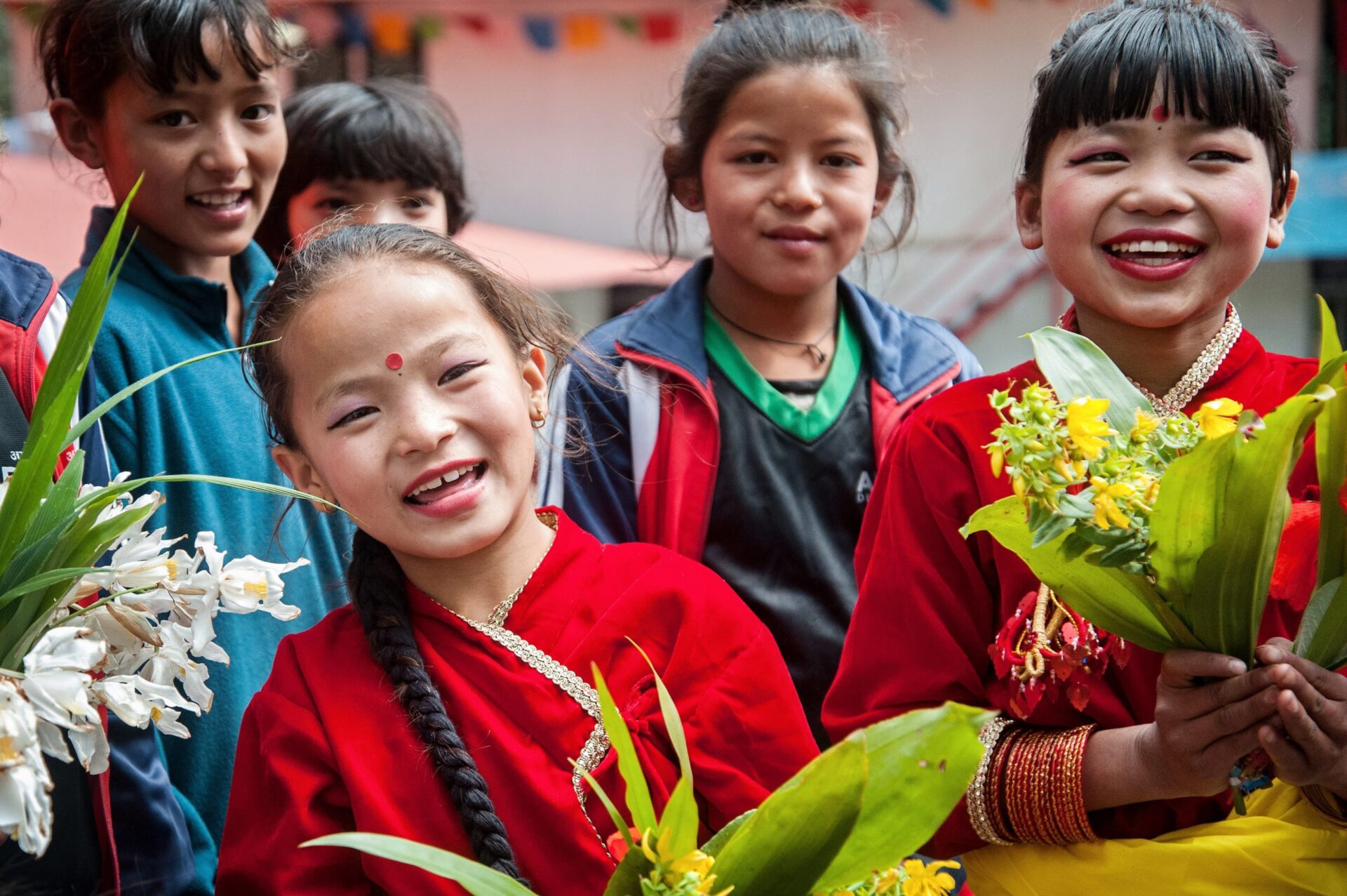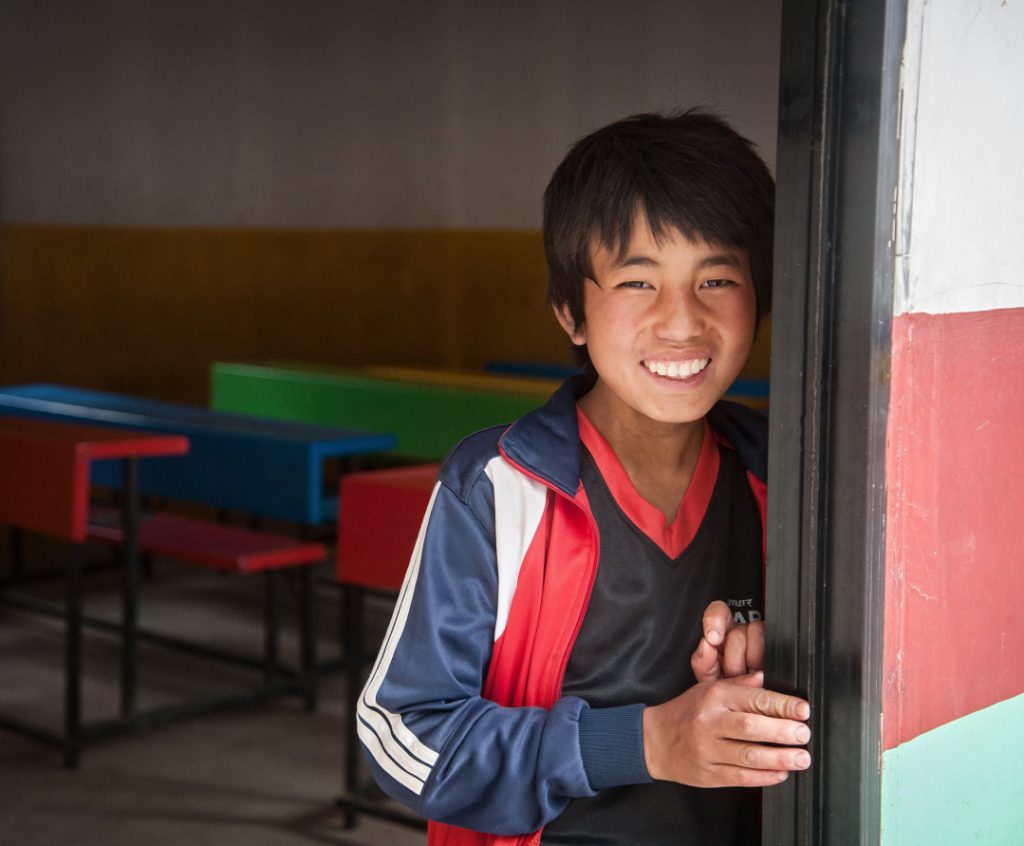Lockdowns, closed borders, shuttered businesses – the COVID-19 pandemic is having far-reaching consequences for many people. And yet while the pandemic has changed many things about life as we know it, there are some things that remain unchanged. The importance of dignified menstruation is one of these things.
An estimated 1.8 billion people menstruate, and this has not stopped because of the pandemic. They still require menstrual materials, safe access to toilets, soap, water, and private spaces. Just as periods continue, so does our work supporting girls, women and all people who menstruate.
We recently sat down with our CEO, Madeline Vaughan, to discuss prevailing local taboos about menstruation and how we’re working to tackle them, as well as the importance of conversations around dignified menstruation.
Q: Hi Maddy, thanks for joining us for a Q&A! Could you begin by telling us about a couple of the prevailing local taboos or myths about periods in Nepal or Uganda?
MV: When people in Uganda and Nepal get their periods, they face the monthly reality that vital routines like cooking, socialising with friends and family, and schooling come to a halt for 3 to 7 days. In some parts of Nepal, this can even be a time of fear and dread, as many girls and women are exiled to makeshift dwellings or huts where they must stay until their period is over. This practice is called Chhaupadi and is rooted in the myth that menstrual blood is impure. Menstruating women are thought to offend the Hindu gods and bring down a curse on their households if they remain indoors.

Although Nepal’s Supreme Court banned Chhaupadi in 2005, the practice still continues in many parts of the country. This practice is extremely dangerous and has led to the needless deaths of many women and girls as they are exposed to many risks, including extreme weather conditions, animal attacks, or even asphyxiation caused by inhaling smoke from the fires they light to keep warm during the freezing Himalayan winter.
Across both Uganda and Nepal, other myths persist (although are gradually being challenged) including myths that if a menstruating woman touches a tree, it will never again bear fruit or if she consumes milk or dairy products, the cow will not give any more milk.
Many girls in both Uganda and Nepal have also described the paralysing fear of staining their clothes because they don’t have access to period products or toilet facilities. This embarrassment combined with the tabooed nature of talking about periods, can lead girls to missing out on large amounts of school.
Q: How are activists working to change community attitudes about isolation and other taboo issues relating to menstruation?
MV: Ensuring people are educated about their rights and their periods is one of the best solutions to changing community attitudes. This education centres on promoting the idea of periods being natural and healthy (which they absolutely are!) rather than upholding the myth that periods are impure and dirty. That’s why we’re increasingly seeing lessons about periods included at school in these countries – for both boys and girls.
Activists in Nepal, like Radha Paudel, are also working to change the conversation from just being about ‘Menstrual Hygiene’, which was a buzzword in the sector for a long time, to be about ‘Dignified Menstruation’. This distinction is about moving the conversation from focusing just on the ‘hardware’ side of things (such as hygienic period products and safe toileting facilities) to really focus on dismantling institutional, structural, interpersonal, and social oppressive systems that make menstruation taboo. Activists argue that to live a dignified life during menstruation, people should be allowed to live in a state free from any forms of abuse, discrimination and violence associated with menstruation. This is an important shift in the conversation.
Q: How is Adara addressing these issues?
MV: Addressing these issues is embedded in Adara’s holistic approach to health and education. This involves making sure the 16 schools we partner with in Nepal have “period-friendly” toileting facilities. We provide health education for boys and girls to teach them about menstruation and managing periods, so it doesn’t stop girls from attending school and getting an education. We also provide students with access to period products like pads. Since starting these programmes, we have noticed that girls are now much more comfortable talking about their periods.
On a more macro level, we also work to influence government policy around dignified menstruation. Our Nepal Country Director, Mr Pralhad Dhakal, has developed quite a reputation for showing up to almost every government meeting with a bag full of period product samples, including reusable pads, period-friendly underwear, and menstrual cups, to encourage government ministers to add dignified menstruation to their agenda, and to normalise the discussion.
Q: How has COVID-19 impacted on Adara’s work around menstrual dignity?
MV: Our work on dignified menstruation continues even during COVID-19 and lockdown. COVID-19 has meant that many schools across the world have closed – including in Nepal. Luckily, before schools closed in Nepal, we were able to distribute period-proof underwear to students at Ghyangfedi School. We also conducted an education session about using the underwear and managing periods. This means that students should have access to safe and hygienic period products while they’re away from school. When schools re-open, we plan to ask students to complete a questionnaire about their experiences of using the underwear before we do a second round of distribution.
Our partners at the Women’s Foundation Nepal have also established a new cloth mask business. This brilliant new enterprise will generate much-needed income for women who are survivors of domestic violence, whilst also providing masks to protect school children and communities facing COVID-19. As well as masks, the Women’s Foundation is exploring the possibility of producing reusable period panties and will produce reusable pads.
We are also continuing our work influencing government policy. While the conversation may have slipped away from important topics like this, we continue to campaign to put dignified menstruation on the agenda. We believe that these conversations are more important now than ever.

